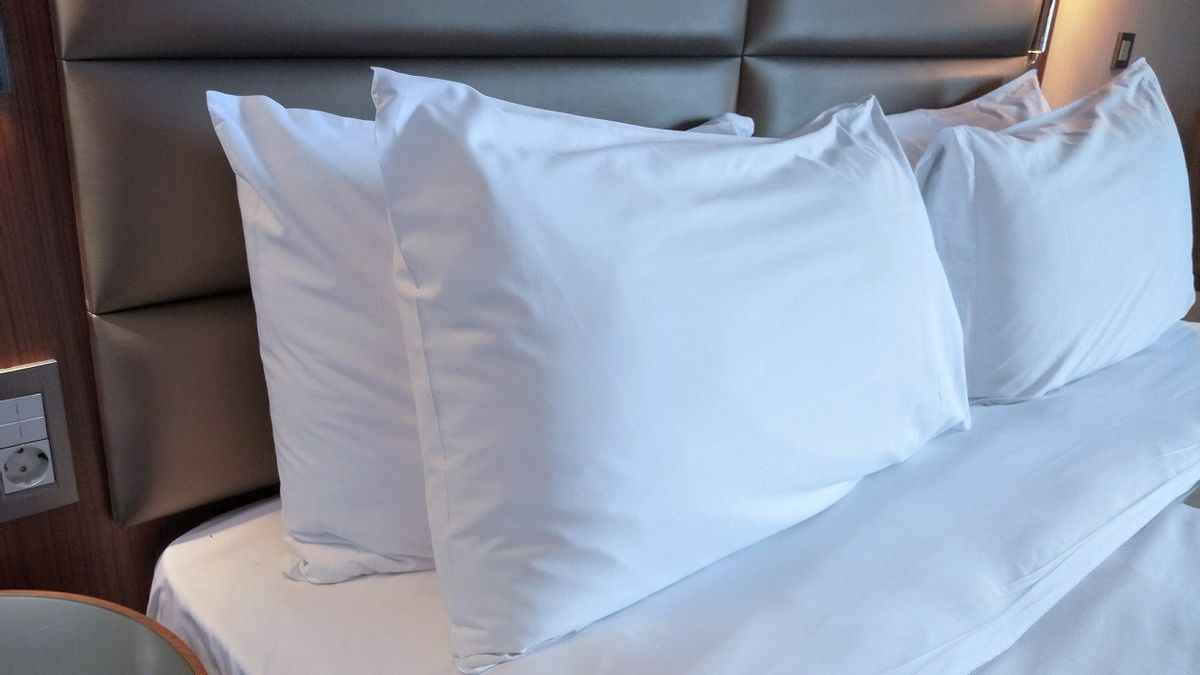JAKARTA - These are the stuff of nightmares. You check into your hotel room late at night, get into bed and curl up in the crisp white sheets ready for a good night's sleep, only to find bed bugs 'glaring' at you over the covers.
Fortunately, for Bethan Edwards and partner, who had booked a two night stay at Travelodge London Finsbury Park, in early February, it never got that far.
Bethan said she saw one of the 'terrible' creatures sitting on the bed covers, even before they unpacked and went downstairs to report it to reception, accompanied by photographic evidence.
"It was disgusting," said Bethan, who was offered another room but declined.
"We didn't feel comfortable staying in the hotel after that and didn't want to risk finding fleas. We asked for a refund but the staff member at reception said he couldn't."
"We had to leave at 1am to find another place in the area, which cost us more than double what we had paid."
Meanwhile, a spokesperson for Travelodge said, ''We carried out a comprehensive investigation using an independent specialist company.
"Their findings confirm that there is no evidence of bed bugs in the room where Miss Edwards is staying. We have shared this report with Miss Edwards," he explained.
He added that the company had offered Bethan a full refund and an apology.
Dark orange, bed bugs the size of an apple seed and hide during the day under mattress covers and skirting boards, in bed frames and electrical switch plates. They crawl out at night while you sleep to enjoy your blood, attracted by your body heat and carbon dioxide emissions.

Nocturnal ghouls inject an anesthetic into your skin, so you won't feel anything while they feast and the bites can take a few days to develop.
Once they do, you'll itch like crazy and, while harmless, can become infected if you scratch too much.
As if that weren't bad enough, the psychological impact of the presence of bedbugs can lead to severe anxiety, depression, paranoia.
Unfortunately for travelers, bed bugs, or cimex lectularius to give them their official name, they are easily contagious and very difficult to get rid of once an infestation occurs.
Apart from hotels (five-star or rundown motels, they don't look at status), you can find them on public transportation, in offices to public apartment blocks.
They can't fly, so rely on humans for transportation and will happily hitch a ride in your suitcase, purse while you stay unconscious.
To note, bed bugs were common in England about a century ago, but their numbers have been greatly reduced by the use of insecticides such as DDT, which are now illegal.
Since then, the dodgy insects have developed resistance to chemical treatments, making their eradication more difficult.
Separately, New York suffered a bedbug invasion in 2010, scaring hotel guests and Broadway theater goers and temporarily closing its Niketown store on 57th street.
A decade later, in France, the government launched a "bed bug hotline" in response to the return of the bloodsucking threat.
How to avoid hotels with bed bugs? Adam Juson, co-founder of the Merlin Environmental Pest Control Company, is one of the few people in the UK to train bloodhounds to track bed bugs. Smart canines can pinpoint an insect in a hotel room, laundry area, or even a vacuum cleaner.
The best way to avoid picking up one (or more) of the beasts in a hotel is to read reviews before you book your stay, says Adam.
"Make sure guests don't report bed bug problems and stick with reputable hotels and guesthouses. Many of them hire pest control companies to screen for bed bugs on a regular basis rather than waiting for guests to report problems."
"You can also check with hotel management to ask if they are doing screening if you have any doubts."
Other ways to minimize risk include using luggage racks instead of floors to store your luggage. Check mattresses and bedding for signs: bloodstains from crushed insects, as well as rust and black ink spots, otherwise known as bedbug droppings.
The English, Chinese, Japanese, Arabic, and French versions are automatically generated by the AI. So there may still be inaccuracies in translating, please always see Indonesian as our main language. (system supported by DigitalSiber.id)













